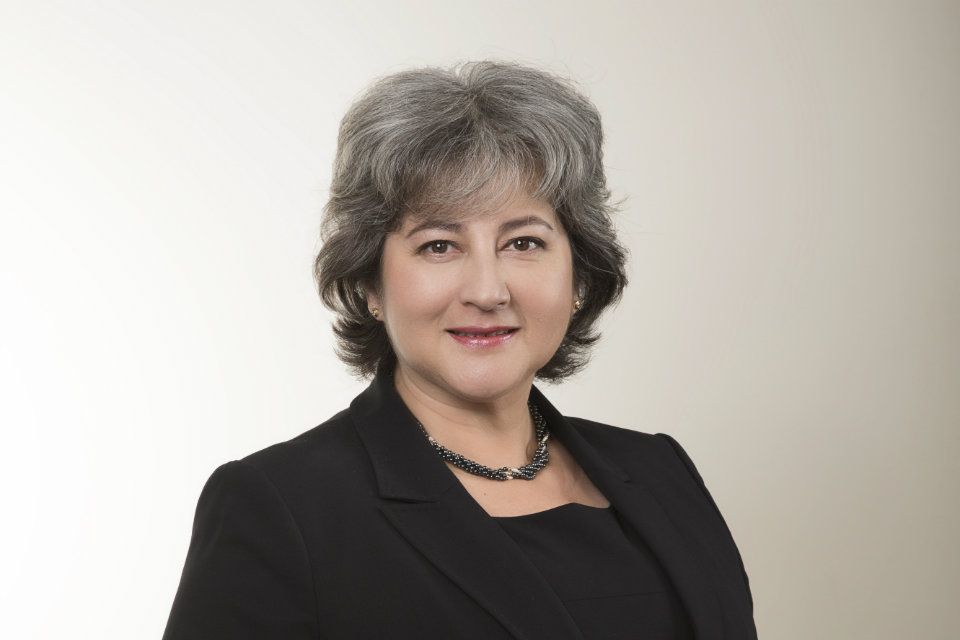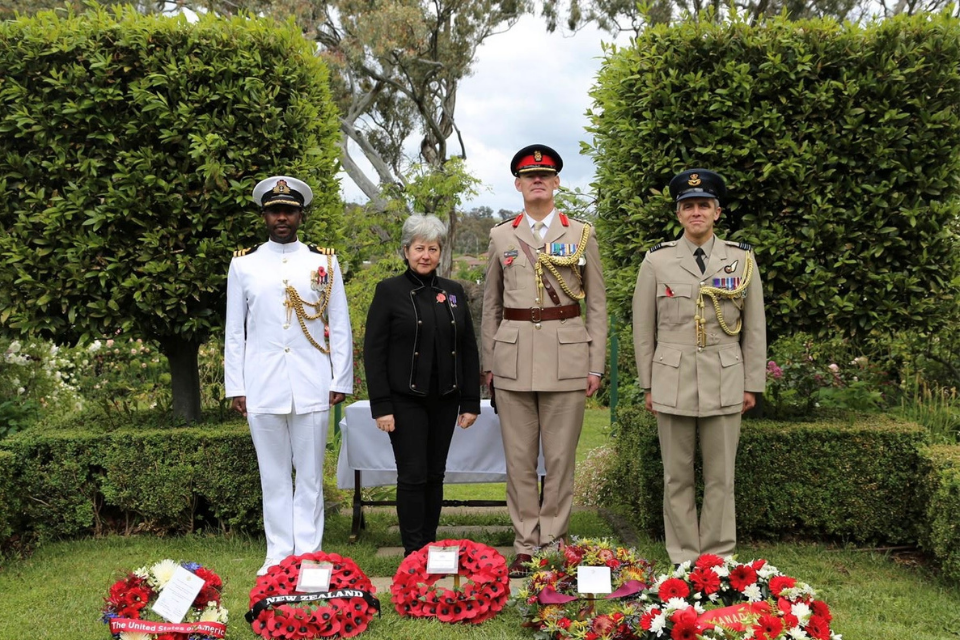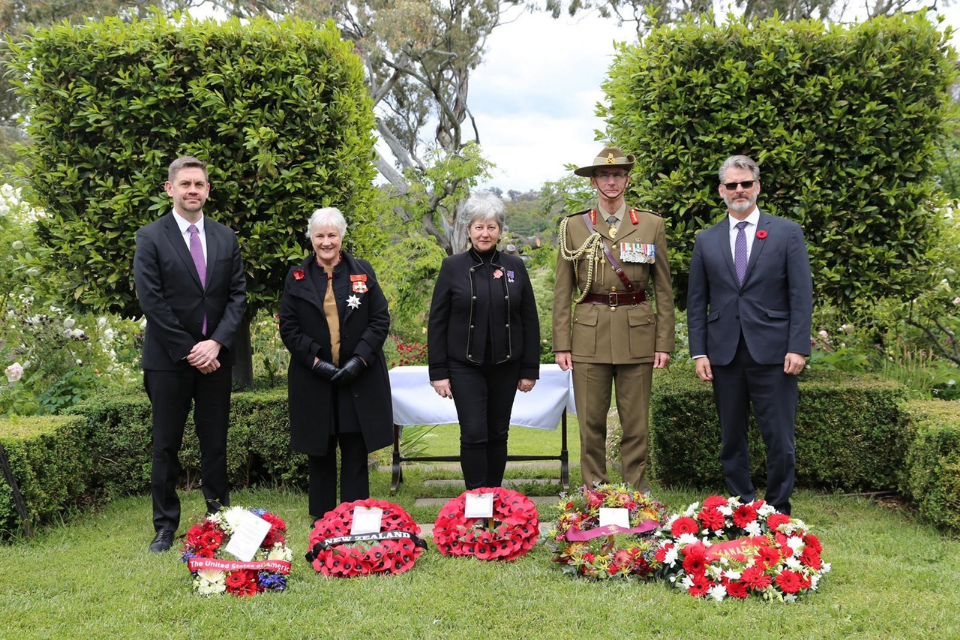2021 Remembrance Sunday Address by HE Vicki Treadell
British High Commissioner to Australia, HE Vicki Treadell delivered Remembrance Sunday Address commemorating contributions of British and Commonwealth military and civilian servicemen and women.

The act of remembrance keeps alive the flame of hope that the loss we gather to remember was not in vain, and importantly, to honour those who gave so much for our freedom.
Our traditions may vary in the way we do this from country to country, but, what is common – our shared responsibility as the living across likeminded nations – is to keep this flame burning.
For those of us who stand free - free to choose - free to speak - free to be whom we want to be - it is imperative we understand that the gift of freedom is not to be taken for granted nor should we be complacent in its preservation.
We also know, sadly, that there are still people in our world today who do not enjoy the freedoms and rights we enjoy.
Mankind’s history is marked by conflict - freedom, peace and stability continue to be challenges for our world today.

Our tradition of Remembrance in the UK is a commemoration on the 2nd Sunday of November – Remembrance Sunday, the Sunday closest to Armistice Day on 11 November.
Armistice Day marked the end of WW1, it was:
- when peace came
- when hostilities ceased
The moment when the guns fell silent on the 11th hour of the 11th day of the 11th month.
And the records tell us the price of that war was heavy.
Over 16 million people on all sides – military and civilian – were killed.
This was the price of liberation of occupied countries and the restoration of sovereignty and the rule of law.
And we should not forget that many came to fight for peace.
Over 3 million from America, Canada, South Africa, Australia, New Zealand and Newfoundland.
New Zealand paid the highest price as a proportion of its male population, 5% of all their men aged between 15-49 years were killed.
But we must remember too, especially in these global times, when suspicion of the other, when racial and social harmony seems fragile in so many countries, that others came too.
1.5 million came from the Indian sub-continent, of which 800,000 were Hindus, 400,000 were Muslims, 100,000 were Sikhs and 62,000 of their number died.
180,000 came from Africa and 16,000 from the Caribbean – with 10,000 from Jamaica alone.
Pacific Islanders – including Fijians, Niueans, Samoans, Tongans, Cook, Gilbert and Alice Islanders – came too.
Blood is red. Whatever the colour of your skin.
We, across nations, races and religions, stood together for common purpose.
In a world where conflicts still rage, where geo-political changes are causing uncertainty, like-minded countries must never be complacent. We must continue to strive for peace and partnership.

We must strive for dialogue and understanding.
We must strive to secure relationships built on trust and understanding.
Otherwise we squander the sacrifices made by those we commemorate today…
… and we fail to understand and apply the lessons of history.
For Britain, as we look forward, I can say this:
We will always stand by Europe as we have done before in her darkest hours.
We will equally continue to have a global outlook including our interests in the Indo-Pacific.
We will play our part to secure a peaceful and stable world.
We will encourage and support an international rules-based system.
We will argue for dialogue and diplomacy first.
We will work with allies and friends.
And we will seek common ground where we may start from a position of difference.
We owe those we commemorate today that much. But we also owe it to the generations to come to leave them a better world.
That is why we gather here today.
That is why we remember them today.
Lest we forget.